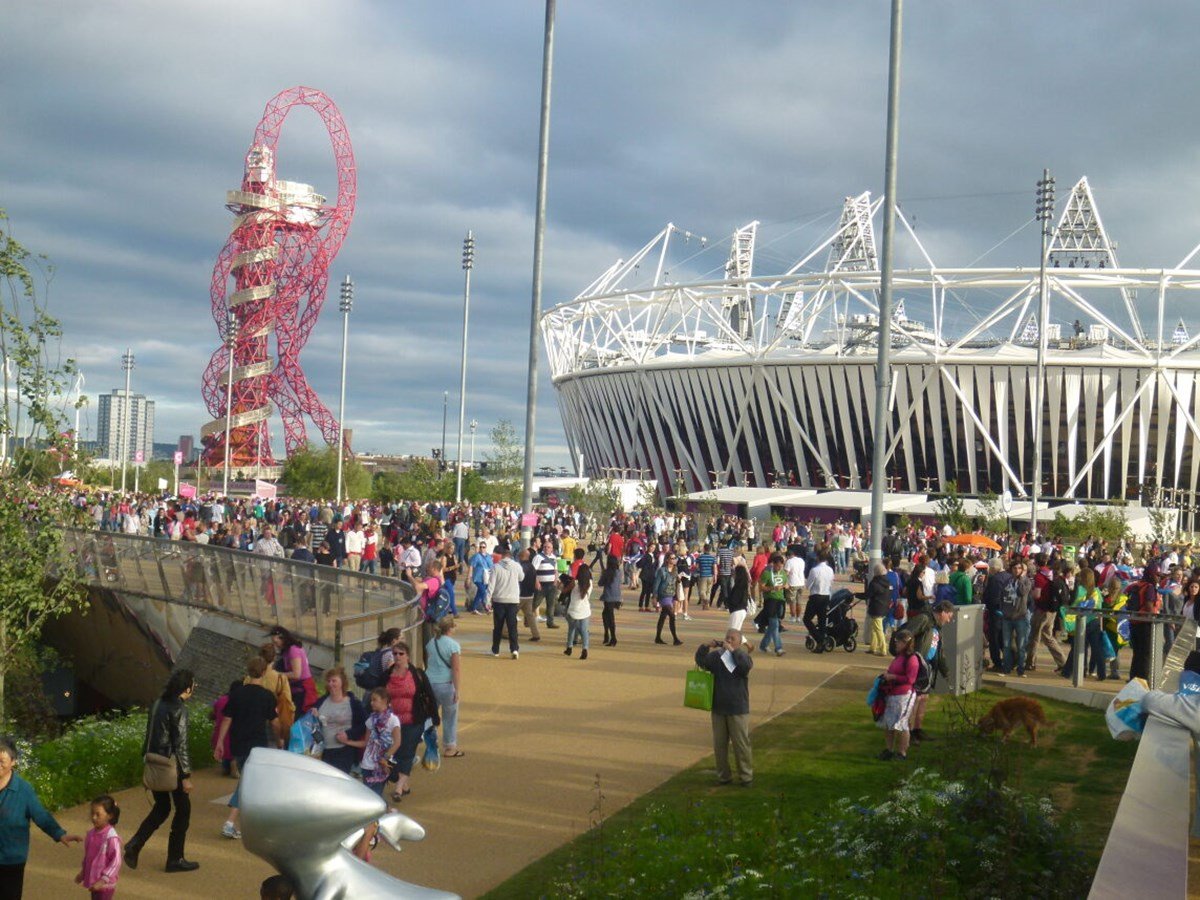While the event spaces of Olympic Parks are integral to the hosting of the Olympic Games, they require substantial reconfiguration in the post-event mode to create viable, mixed use and liveable places. Without such a transformation, the legacy prospects for an Olympic Park can be to remain as nothing more than a ‘ruptured space’ within the urban fabric of the host city. This research evaluated the challenges of transforming Olympic Parks, using evidence from four past hosts.

The Olympic Park in London, constructed for the 2012 Olympic Games
Each host city demonstrated different responses to this urban design challenge:
- Continuity between the event and post-event configuration of the Olympic Park, but with intensification of uses over time (Munich, 1972).
- Retrofitting commercial, employment, residential and educational uses alongside the retention of sporting venues (Sydney, 2000).
- Post-event legacy configuration planned comprehensively from the outset (London, 2012).
- The delivery of post-event configuration by the private sector guided by viability (Rio de Janeiro, 2016).
The discussion raised questions about the ceremonial focus of the Olympic Park and whether a more decentralised model might make the associated urban design and planning legacies more deliverable for future host cities.
